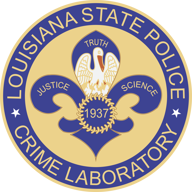

- Home
- About
- Reform Initiatives
- Services
- Community Outreach
- Recruitment
- Forms
The primary role of the Toxicology Unit at the Louisiana State Police Crime Lab is to analyze blood and urine to determine if alcohol and/or other drugs are present in the sample. A multitude of analytical techniques and instruments are utilized including solid phase extraction, GCMS, GCFID, ELISA, LCMSMS, and HPLC. Most of the requests received by the toxicology unit are for the analysis of blood and/or urine from drivers of motor vehicles pursuant to DWI investigations. The unit is able to detect the presence of and quantify ethyl alcohol and other drugs which may cause impairment in the ability to drive a motor vehicle safely. Other samples include blood and urine from coroner’s investigations relating to overdose deaths, sexual assault investigations, and officer involved shootings. The unit analyzes 4,000-5,000 samples annually with alcohol and THC being the two most common drugs reported. Fentanyl, methamphetamine and cocaine round out the remaining drugs in the top five most commonly reported drugs.
In addition, the Louisiana Revised Statue R.S.32:663B commissions the unit, through the Department of Public Safety and Corrections, to permit the blood alcohol and toxicology testing programs throughout state of Louisiana. The Rules and Regulations for breath and blood alcohol and toxicology testing may be found in the Louisiana Administrative Code Title 55, Chapter 5.
The unit also provides blood alcohol and toxicology data to the Traffic Records Coordinating Committee, Highway Safety Commission, and the Fatality Analysis Reporting System at NHTSA for statistical analysis to determine the severity of impaired driving in Louisiana.
Captain Chad Guidry - Commander
376 East Airport Dr.
Baton Rouge, LA 70806
Phone: (225) 925-6216
Email: CrimeLab@dps.la.gov
Fax: (225) 925-6217
Fax: (225) 925-4401
